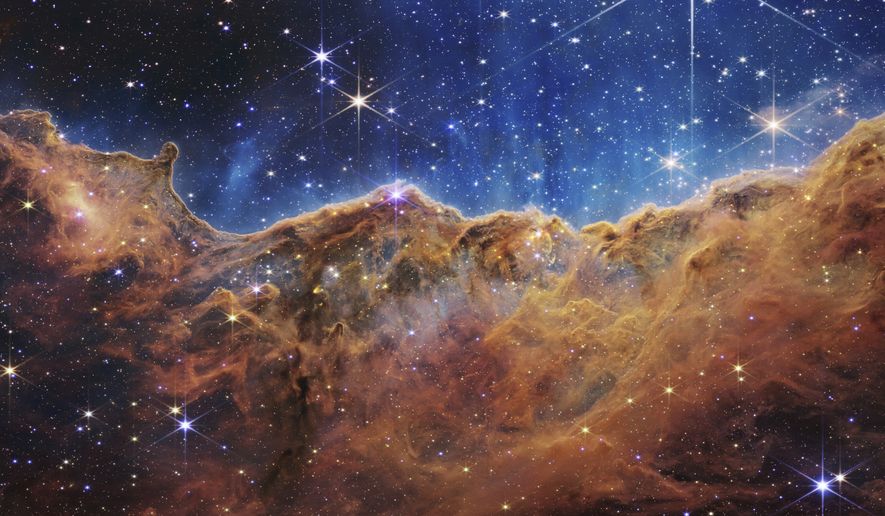A Harvard University professor says the spectacular images of distant galaxies beamed to Earth by the James Webb Space Telescope offer more than a fascinating glimpse at remote corners of the universe.
The images raise issues for followers of the Abrahamic faiths (Judaism, Christianity, Islam) and affirm the thoughts of Enlightenment philosopher Immanuel Kant, who in the 1700s imagined the possibility of galaxies beyond our own, says Harvard government professor Michael Rosen.
The Webb images could challenge the Abrahamic idea “that the creator of the universe has a particular relationship to mankind on Earth,” Mr. Rosen said.
“What if mankind turns out to be unique?” he added. “So far, there is no hard evidence to the contrary, and the Webb telescope leaves it open.”
Kant is at the center of Mr. Rosen’s new book, “The Shadow of God,” which traces the influences of religious thought on markedly secular philosophies. Mr. Rosen says Kant was in no way a Christian but was influenced by the cultural Christianity around him. That culture also prompted Kant to look at the heavens and conjecture about their meaning.
Kant has “some claim to be the inventor” of the notion that the Milky Way is but one of many galaxies, something now reinforced by the dramatic new images of the cosmos, he said.
That insight of “the starry heavens above,” coupled with man’s innate moral law, filled Kant’s mind “with ever new and increasing wonder and reverence,” as Mr. Rosen quoted the philosopher.
“I think that Immanuel Kant would have been absolutely fascinated by” the Webb telescope images, Mr. Rosen said in an interview.
Kant never traveled much outside his hometown of Königsberg, Prussia (now Kaliningrad, Russia), but “he was immensely curious about the world around him. He kept up with science, the news [and] politics,” Mr. Rosen said.
Kant’s interest in the science of his day led to his fascination with the 1755 Lisbon earthquake, which claimed between 12,000 and 50,000 lives in Portugal alone. While the temblor influenced Kant’s views of theodicy, he also posited scientific theories to explain what happened.
His theory that the rise and fall of a “subterranean ocean or fluid” whose fluctuations caused the earthquake was clearly wrong, Mr. Rosen said. Yet it reflected a curiosity about the natural world that led Kant to speculate that the nebulae of outer space represented galaxies apart from ours.
“This was a guess on his part, which unlike his guess about the Lisbon earthquake, turned out to be a full-on bullseye,” Mr. Rosen said.
That question of theodicy — of why God permits evil and disasters in the world — was another major issue raised by the Lisbon quake. Many believed the world was ordered for human happiness by a loving deity. The disaster literally shook those notions to their foundations, Mr. Rosen said.
Instead of insisting on human happiness as the universe’s purpose, Kant said it was “made for human agency,” the principle by which people decide how to live moral lives.
Kant “thought that once you reflected on agency, once you reflected on the uncompromising nature of moral demands, and once you listened to your own conscience, that will be sufficient to lead you up to a moral point of view,” Mr. Rosen said.
• Mark A. Kellner can be reached at mkellner@washingtontimes.com.




Please read our comment policy before commenting.